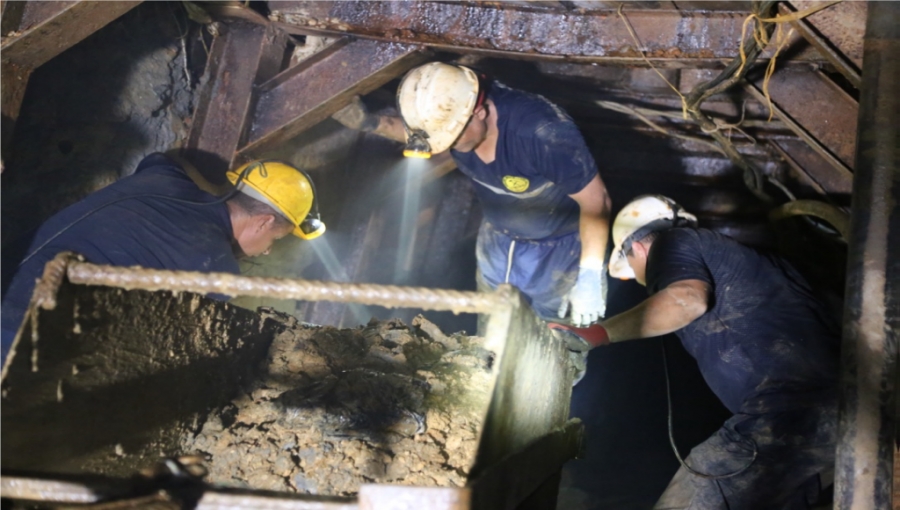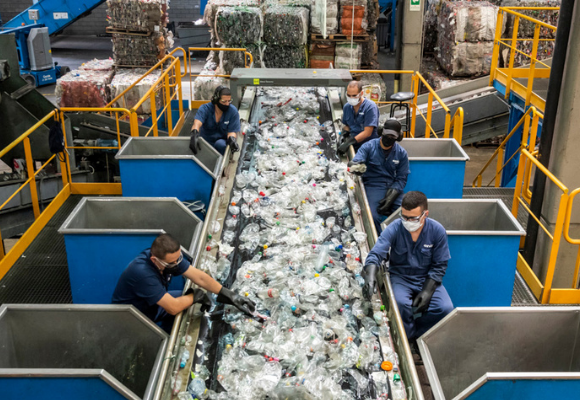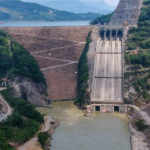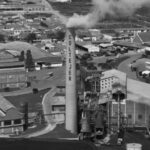USAID Helping Illegal Miners to Legalize; Many Still Balk; Some Promote Violence

The U.S. Agency for International Development (USAID) announced August 8 that its “Oro Legal” program has already helped 205 miners and 176 informal/illegal gold-mining families in Antioquia convert to safer, legal mining – with many more miners targeted for help by 2020.
Working with the departmental government of Antioquia, “Oro Legal” projects (and the “Bioredd” predecessor projects) have already converted dozens of “mining production units” (“UPM” in Spanish initials) to legal operations, 36 of which now operate through service contracts with responsible miners that obey Colombia’s environmental, fiscal and social laws.
Thanks to “Oro Legal” educational efforts, newly formalized miners have helped slash annual toxic mercury dumping by seven tons, while 770 hectares of lands deforested and wrecked by irresponsible mining have now been reforested, according to USAID.
In three key gold-mining areas — Buriticá, San Roque and El Bagre – legal miners produced eight tons of gold last year, according to the agency.
However, an estimated 1,664 illegal mines are still operating in the area, when including nearby townships including Caucasia, Cáceres, Nechi, El Bagre, Zaragoza and Tarazá, according to the agency.
“With a team of technicians and professionals, ‘Oro Legal’ helps small miners identify routes to legalization, which permits them to obtain [formal mining] rights,” according to USAID.
In areas where formal mining companies have yet to hold mining titles, “Oro Legal” also helps informal miners obtain legal-claim areas, according to the agency.
In areas where mining companies already have legal titles, the Oro Legal program helps illegal miners obtain subcontracts to work with legal miners — while simultaneously preventing toxic mercury use.
Through July 2017, the “Oro Legal” projects have already legalized 38 “UPM” mine operations, of which six are in Antioquia’s Bajo Cauca region, 19 in the Northeast region and 13 in Buriticá, Don Matías and Barbosa, according to the agency.
Another 114 UPM operations are in process of legalization, 62 of which are located in Bajo Cauca, 36 in the Northeast and 16 others in the municipalities of Puerto Berrio, Buriticá, Don Matías and Barbosa, according to the agency.
Oro Legal also coordinated with Antioquia Governor Luis Perez on another 29 formalization subcontracts.
The agency also brought technical assistance to another 17 “UPM” operations in titled mining areas owned by Canada-based Gran Colombia Gold.
As for the future, Oro Legal aims to legalize 220 artesinal mining operations in Antioquia and Choco regions, involving about 17% of currently estimated illegal gold mining operations in the area.
This project would help some 3,800 mining families diversify incomes with alternative businesses, slash mercury dumping by 55 tons/year and legalize about US$280 million of currently illegal gold production, according to the agency.
Some Miners Refuse Help, Push Strike
Despite these good-faith efforts to promote environmentally and fiscally responsible mining, some miners don’t want the help – and some have mounted violent protests against legal mining over the past two weeks.
According to an August 8 report from Colombian daily newspaper El Tiempo – quoting statements from Antioquia Governor Perez – Colombian Army troops recently encountered caches of explosives and weapons used by violent demonstrators.
Meanwhile, another group of demonstrators protested outside the Governor’s offices this week in Medellin, with signs attacking multinational mining companies — companies that don’t dump mercury, pay all required taxes and royalties, and don’t support criminal groups that use violence and extortion in mining areas.
In contrast, informal, illegal miners “are not prepared for the ‘no-mercury’ mining norm,” the report quoted “Conalminercol” informal-miner association leader Rubén Darío Gómez as saying.
Meanwhile, Canada-based Gran Colombia Gold has sent tons of food and water to Segovia and Remedios where strikers have blocked roads. But some strikers/demonstrators armed with machetes and clubs stole the supplies from Gran Colombia workers, company spokesman José Ignacio Noguera was quoted as saying.
On a related front, another strike leader – Ramiro Restrepo, president of informal-miner association Asomineros – was quoted as saying that new legal-mining rules in Antioquia have made it nearly impossible for illegal-informal miners to sell their gold.
Now, such miners are required to get proper licenses and environmental permits. But informal miners don’t have time to do all this paperwork, Restrepo was quoted as saying.
Ironically, many of these illegal miners are now showing that they do have sufficient time to mount protests — sometimes violent — against legal mining and block roads to mining towns, preventing access to critical food and water supplies.
What’s more, six employees of Canada-based legal miner Continental Gold died in a suspicious explosion two weeks ago, following an attack by illegal miners (see “Violence Slams Legitimate Canadian Gold Miners in Antioquia,” Medellin Herald, August 1, 2017) .
















